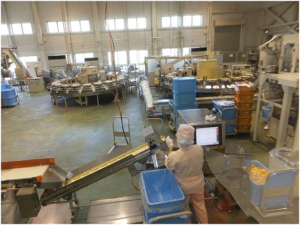Opportunities Are coming from UberEats
First Uber took the capital by storm with its app-based taxi service, and now it intends to do the same with its new food delivery service, UberEats. This new food delivery service was launched in London on the 16th June 2016, and whilst critics claim it will need to be ‘compelling’ in order to win over customers and find a new demographic, many say that the benefits to food retailers and restaurateurs could be huge. So what are the opportunities for those in the food industry service when it comes to UberEats?

UberEats: How It Works
UberEats offers users the chance to order directly from restaurant menus and has meals delivered to their home or office. Users can expect the food to be delivered in just over half an hour and can pay using their Uber account. Users can keep track of their delivery to with very clever technology a lot like Fleet Vehicle Tracking systems knowing exactly where their food is at any one time. This kind of technology can be sourced from sites like https://www.vehicle-accessories.net/vehicle-tracking/fleet-tracking/. UberEats now operates in a lot of destinations in the UK (it also already operates in Tokyo, Paris and New York).
The Opportunities
Unlike Amazon Fresh, a new service that delivers groceries, and Just Eat, a food delivery service that is associated with traditional ‘takeout’ cuisine such as Chinese, Indian, kebabs and pizza, UberEats is targeting another demographic altogether. Aiming to deliver from both chain outlets as well as independent, upscale and world-food restaurants, it will offer a slightly different service. The opportunity for many retailers is the existing market of Uber users – over two million in London alone. A trend towards convenience will hopefully prove profitable for many restaurants.
The food industry is always changing, although the demand for quality food remains the same. Whilst food manufacturers are finding ways to cut costs by buying used food processing machines. London restaurants such as Pho and Chilango are trailblazing their own path by partnering with UberEats.
The latest statistics from market research specialist IGD Shopper Vista reveal that shoppers are changing their attitudes to eating out. IGD has found that a 40% plan on cutting down on eating out – down from 46% in 2015.
Whether the UberEats service is a success remains to be seen, but it certainly will offer a new and exciting platform for city restaurants to promote their menu to an existing and profitable demographic.



